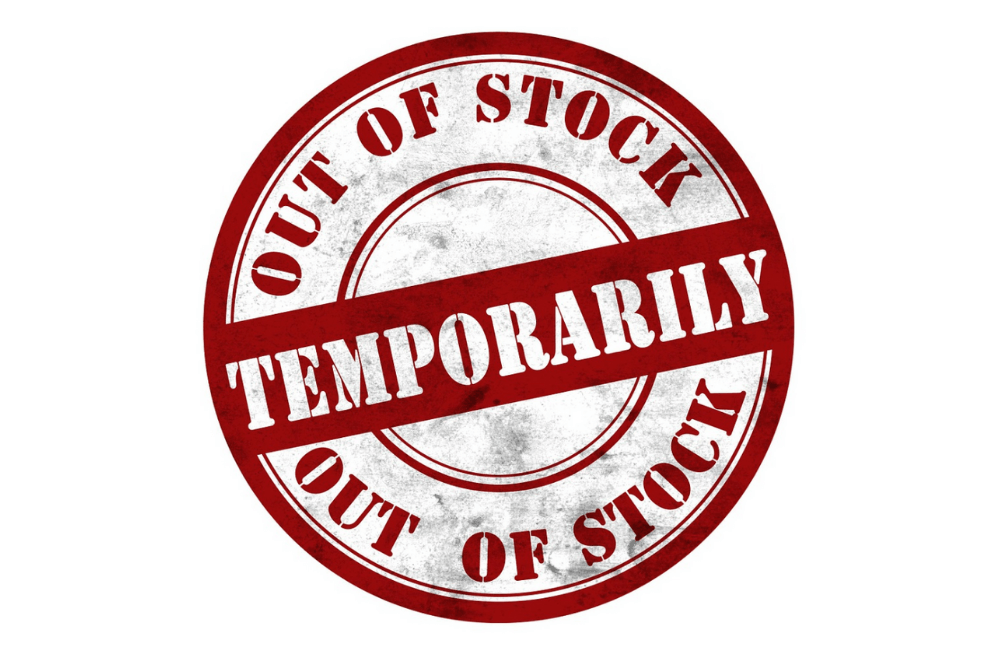
Toilet paper. Paper towels. Clorox wipes. Hand sanitizer. Masks. These are all items that have been in short supply at one time or another since the COVID-19 pandemic began.
Now that we’re past the initial stages of fear and fighting over the last package of TP at the grocery store, there are still a number of less-obvious items that remain hard to find.
I first noticed it when my teenage son asked for a weight bench and some weights so he could work out at home. They seemed to be sold out everywhere, and when I finally found a set on Amazon, my order was inexplicably canceled by the seller. It turns out my son wasn’t the only one trying to work out at home. And so it went for bicycles, swimming pools, kayaks, and even roller skates.
Webcams became hard or insanely expensive to purchase because so many people are working from home and using video conferencing services every day. Ink cartridges were out of stock because people are printing more pages at home. Coffee makers were hard to come by. And SodaStream ran out of replacement CO2 canisters for its at-home carbonated beverage makers.
An informal poll of my connections on Twitter and Facebook revealed an eclectic list of items that are still out of stock in many places:
- Spices
- Tortillas
- Baby bok choy
- Fence pickets
- Fishing poles
- Rubbing alcohol
What can we learn from all of these shortages? No, I don’t mean that we should all become hoarders. I mean from a business perspective, because it’s not a good look from a branding or customer experience perspective when in-demand products are impossible to buy.
Research from digital experience platform Acquia found that 72% of customers agree with the statement: “I am loyal to certain brands, but as soon as I have a bad experience with them, I move on.” So even in a time of crisis, it is critical that brands provide positive, memorable experiences to their customers. (Related: 5 things you can do right now to respond to the COVID-19 outbreak)
Preparation is Key
Business continuity planning (BCP) is still a relatively new practice, but it’s a good bet that every company will take it more seriously going forward. In fact, I predict that BCP experts will be in high demand during the next year, as companies attempt to shore up risk and prepare for whatever lies ahead.
According to Investopedia, BCP “is the process involved in creating a system of prevention and recovery from potential threats to a company. The plan ensures that personnel and assets are protected and are able to function quickly in the event of a disaster…[and] involves defining any and all risks that can affect the company’s operations.”
No longer can we sit in BCP meetings and scoff at hypothetical events that could “never happen.” Trust me, I was in many of those meetings during my 20 years in Corporate America. We’ve said that terrorist attacks could “never happen.” We’ve said it about active shooter scenarios. We’ve said it about dangerous weather. We’ve said it about cyber attacks. And we’ve definitely said it about pandemics.
No matter what business we’re in, we have to be ready for something like this to happen again. There is no longer any excuse to be unprepared. Take the time to map out a detailed plan that anticipates the next crisis, using learnings from the current one. Hire an expert if you need to, as the entire fate of your business is at stake.
Manufacturers should consider how to immediately ramp up production, or maintain certain quantities of inventory in case of emergency.
Corporations should be ready to have employees working from home instead of coming in to the office at a moment’s notice.
Grocery stores and restaurants should have plans in place to immediately move to curb-side service if necessary.
All of these things eventually happened during COVID-19, but slowly and painfully. And the next crisis will not be exactly the same.
What does your business need to do to prepare for whatever the next crisis is? The time you spend now contemplating and planning out scenarios will help you – and your customers – down the line.
